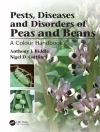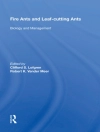This edited book focuses primarily on biofuel production potential in agricultural waste, such as biogas generation, biohydrogen production, and research trends on managing or converting agricultural waste to biofuel. This book also draws attention to technological equipment, generated biofuels from agricultural waste through various biological and chemical processes, and the multiple factors responsible for biofuels from agricultural waste generation.
Agriculture waste can be a renewable source of lignocellulosic feedstock for value-added products. Considering the non-replaceable fossil fuel reservoir, the exponentially growing human population urges an immediate search for alternative renewable energies. To confront the upcoming energy crisis, lignocellulosic agricultural waste is expected to be a sustainable, renewable, low-cost resource to derive bioenergy because of its high availability.
This book will be of interest to researchers, scientists, and scholars working on agriculture waste management and biogas production. The book also serves as additional reading material for Industrial professionals, master’s and degree students, policymakers, and NGOs working on biofuels and sustainable energy production.
Tabela de Conteúdo
Chapter 1. Biofuel Production from Agricultural Waste: A Global Trend.- Chapter 2. Agricultural Waste in Circular Economy: An Indian Scenario.- Chapter 3. Application of Methano Bacteria for Production of Biogas.- Chapter 4. MICROBIAL Advancements in Dark Fermentative Biohydrogen Production: Applications and Innovations.- Chapter 5. Biohydrogen Production from Various Feedstocks.- Chapter 6. Biohydrogen from Agricultural Waste.- Chapter 7. Biomethane Production as an Alternative for the Valorization of Agricultural Residues: a Review on Main Substrates used as Renewable Energy Sources.- Chapter 8. Biofuel Production from Agricultural Residue: An Effective and Sustainable Approach for Management of Agro-Waste.- Chapter 9. Production and Characterization of Bio-alcohols from Agricultural Wastes.- Chapter 10. Technological Advancement for Bio-Hydrogen Production from Agricultural Waste.- Chapter 11. Recycling of Agricultural Waste for Biohydrogen Production.- Chapter 12. Parameters Responsible for Biomass Energy Production.- Chapter 13. Government Initiative and Policy for Agricultural Waste Utilization as Biofuel.
Sobre o autor
Dr. Pardeep Singh currently serves as an Assistant Professor within the Department of Environmental Science at PGDAV College, University of Delhi, New Delhi, India. He earned his Master’s degree in Environmental Science from Banaras Hindu University, Varanasi, India, and completed his Ph.D. at the Indian Institute of Technology, Banaras Hindu University, Varanasi. Dr. Singh has contributed to over 75 publications in international journals specializing in waste management and has also edited 40 books in the field of environmental management with publishers of international repute.












